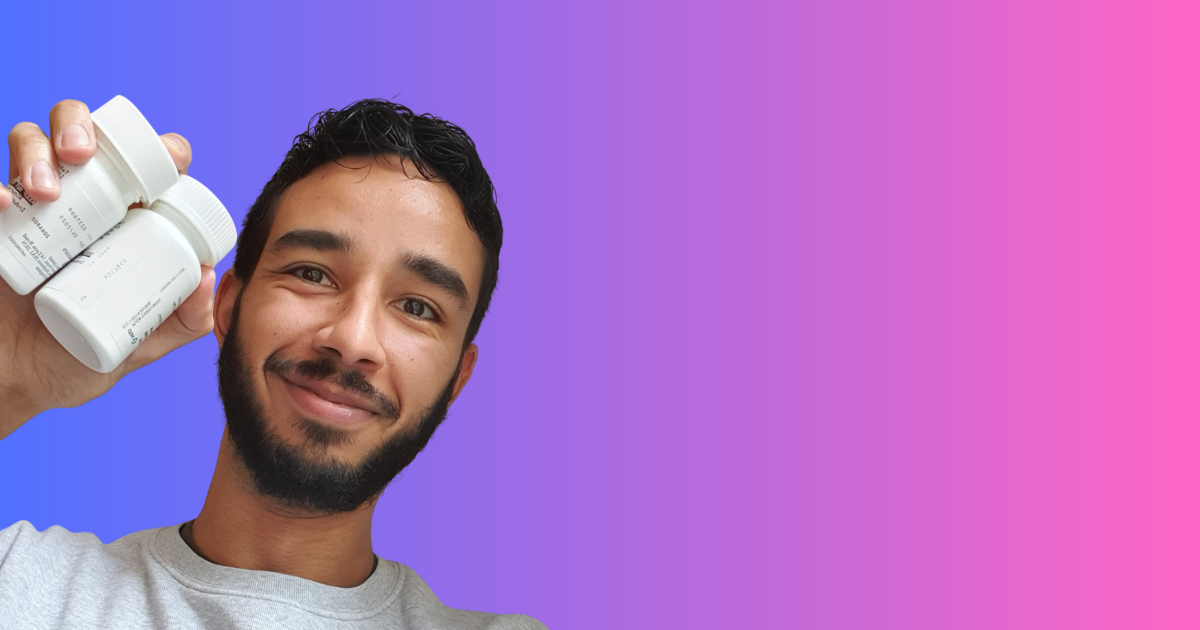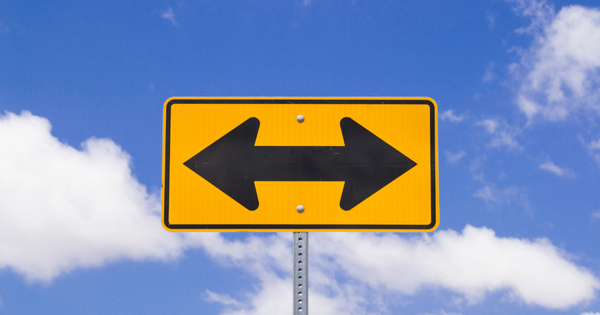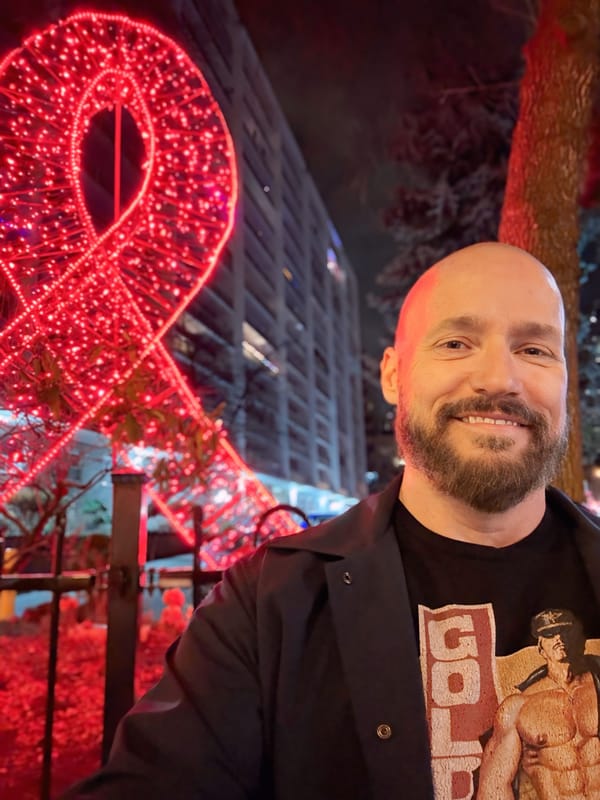5 years living with HIV — 5 years I haven't been able to pass it on

Once a year.
That's how often I go to the clinic for my HIV checkup now.
Once a year.
That's how much confidence the doctors have in the medication.
That's how reliable these 3 little pills are.

My diagnosis
On 8th January 2020, my world flipped upside down.
I thought my life was over.
I thought things would be downhill from there.
I thought no one would ever want to come near me.
How wrong I was.
Turns out, the thing that I thought would be the end of my life, was actually a profound new beginning.
The start of an incredible new chapter.
One in which I went on a journey from darkness into light. A journey of finding myself.
"Something's come up on your test – we need you to come in ASAP"
It's a blur. I don't remember details. But I think the clinic asked me to come in the same day they phoned me saying these words.
Time stood still.
I was unwell, had an eye infection, and felt like a shell of myself.
I was on a crystal meth come-down, anxious and paranoid.
I was an absolute fucking state.
U=U
When I was diagnosed, I barely knew anything about HIV, let alone U=U.
What is U=U?
It's shorthand for Undetectable = Untransmittable.
What does Undetectable mean?
When you have an 'undetectable viral load', it means the amount of HIV in your blood is so low that it can't be detected on standard lab tests.
Viral load is the amount of HIV in your blood. The higher the viral load, the more dangerous it is. HIV medication works to lower your viral load to undetectable levels.
What does Untransmittable mean?
It means you cannot pass on HIV through sex – protection or no protection, it can't be transmitted.
Undetectable within weeks
A few weeks.
That's how long it took me to become undetectable.
I was diagnosed with a CD4 count below 200.
(The World Health Organisation defines this as AIDS — acquired immunodeficiency syndrome — the final and most dangerous stage of HIV infection)
What's a CD4 count?
CD4 is a type of white blood cell which is a measure of your immune system. The more HIV attacks the immune system, the lower the CD4 count.
A standard CD4 count (for someone whose immune system isn't compromised) is 500 to 1,500 cells per cubic millimetre of blood. (cells/mm³)
If the CD4 count falls below 500, the immune system is considered weakened.
If it falls below 200 (as mine had), this is late-stage HIV (a.k.a. AIDS).
My doctor — an incredibly dedicated and helpful NHS consultant, part of an incredibly dedicated and helpful team at an incredible NHS HIV clinic — told me that, providing that I take treatment as prescribed, consistently, at the same time each day, it might take around 6 months for me to become undetectable.
Despite this, it took me more like 6 weeks.
My diagnosis was the start of my recovery from 20 years of struggles with addiction
Due to a perfect storm of regular and excessive use of harmful substances (crystal meth, cocaine, GHB/GBL, alcohol, tobacco, etc.); sleep deprivation (losing 1-2 nights of sleep per week); poor diet; etc — my immune system had plummeted, much, much quicker than the usual person.
When I was diagnosed, I attempted — and, for a significant period of time, succeeded — to quit smoking tobacco, drinking alcohol and using drugs.
I exercised. I rested. I started journaling and meditating daily.
I attended 12-step addiction recovery groups.
And my partner at the time was instrumental in helping to make all of this possible. She was my biggest support. She helped save my life.
Within weeks, my viral load was undetectable.
My life had changed again.
Now, it was certain that I wouldn't be able to transmit HIV to anyone else.

Starting treatment
At first I was terrified.
I'd been popping pills for the best part of 15 years by this point.
But usually the colourful stamped variety — Mitsubishis, rockets, love hearts, double deckers and the like. The ones that found their way into nightclubs somewhere on my person, and eventually down my gullet into my boozy stomach and then my bloodstream to finally flood my brain with serotonin and keep me dancing 'til the early hours – on both sides of the turntables; whether I was on the dancefloor, or playing the music.
But these were some new pills.
Bigger. Smoother. And with a sequence of letters and numbers written on them.
These were fucking scary.
I had to take 4 at first.
3 of them were antiretroviral – working to reduce my viral load and suppress HIV, so that my immune system could start to recover.
As explained above, my immune system was pretty low, so 1 of them was prophylaxis – to prevent me being hospitalised at that advanced stage of HIV infection.
Nowadays, when diagnosed with HIV, most people just take one pill, and they're good to go.
So anyway, yes I started my treatment, with some minor side effects at first – my sleep was affected, some digestive stuff, and a lot of anxiety. But to be honest I was going through all sorts of withdrawals so it's hard to say for sure that this was due to the HIV meds.
Within a few weeks, I was in the swing of it. The prophylaxis (1 of the 4 pills) stopped after a few weeks. Then one of the pills changed after a few months. And since then, I've been smooth sailing.
I take 3 a day. I feel fine. It's part of my life and doesn't bother me at all.
Living with stigma
Where do I start with this?
This is the reason people don't talk.
This is the reason people's mental health spirals.
This is the reason people don't get tested and HIV transmissions rise.
The list goes on.
Stigma = negative attitudes, beliefs, or discrimination directed at people living with HIV — often rooted in fear, misinformation, or moral judgment
I've lived with this from people very close to me.
I remember someone I knew posting a meme making fun of people living with HIV.
That hurt. That one really hit me.
"This is what people really think?"
I felt really alone at times.
It stopped me speaking about things.
It made me feel ashamed.
Getting support after my diagnosis
Thanks to Terrence Higgins Trust and Positively UK, two London-based charities, I was able to get the support I needed to pull myself out of the hole I was in.
The day I was diagnosed, I called the Terrence Higgins Trust helpline.
I didn't believe the diagnosis was real.
As I was with regards to lots of my life (drugs, etc.) I was in denial.
Surely, it was a mistake.
That phone call, and I think a few more in the days afterwards, were a lifeline for me.
Through Positively UK, on the other hand, I was connected with a peer supporter – someone who had been diagnosed with HIV in the past and now supported others in the time after diagnosis.
My peer supporter, Janine, was a lovely woman who was told in the year 2000 that she'd soon be dead. At the time I was diagnosed, she was healthy and had an 18-year-old daughter. She gave me hope.
The NHS clinic referred patients to Positively UK peer supporters like Janine. But I was also referred to an in-house psychologist. She was the best therapist I've ever had.
All of this helped me to live with less shame, to better understand what it was like to live well with HIV, and to navigate the rollercoaster of those early days.
All of that support helped me to better deal with stigma.
It's the reason I do what I do.
HIV stigma kills more people than HIV.
By raising awareness of HIV, relaying accurate information, and sharing my story, it's my mission to reduce stigma — so that people living with HIV don't feel silenced, judged, excluded, marginalised, attacked, etc etc etc.

5 years on
On 8th January 2024, I decided to share my story with the world. My HIV status, my struggles with addiction and mental health. My recovery.
It was the best decision I've ever made.
Now, after 5 years living with HIV, I feel stronger than I ever have in my life. I'm living healthy and I no longer abuse my body by depriving it of sleep for days on end, filling it with a cocktail of substances on a weekly basis, and living in a constant state of extreme highs and extreme lows.
Today, through the content I post, I'm so grateful to be able to help others in the same way I was helped.
It gives me a deep sense of fulfilment that I can't really explain.
I'm actually really grateful I was diagnosed with HIV.
Because if I hadn't been, who knows what state I'd be in at this point. I might not even be here.
"When it rains, look for rainbows; when it's dark, look for stars" – Oscar Wilde
When life turns upside down on you, you can fall over, or you can walk upside down with it, and see where it takes you.
And, if you're reading this and you're living with HIV, if you take your meds as prescribed, chances are you can also go living life as normal – or, as I have, become healthier and stronger than you were before.
It's that simple.
If you're living with HIV, here are some options for support
In the UK: Terrence Higgins Trust (helpline) or Positively UK (peer support)
Worldwide: Join Positive+1 for all things HIV (newsletter, community, dating, and more)
Written by Hamish Noah – an HIV Advocate and Addiction Recovery Coach from London, UK.
This article also appears in Hamish's LinkedIn newsletter it's that simple – which features tips, insights and inspiration on HIV, addiction and being human.





